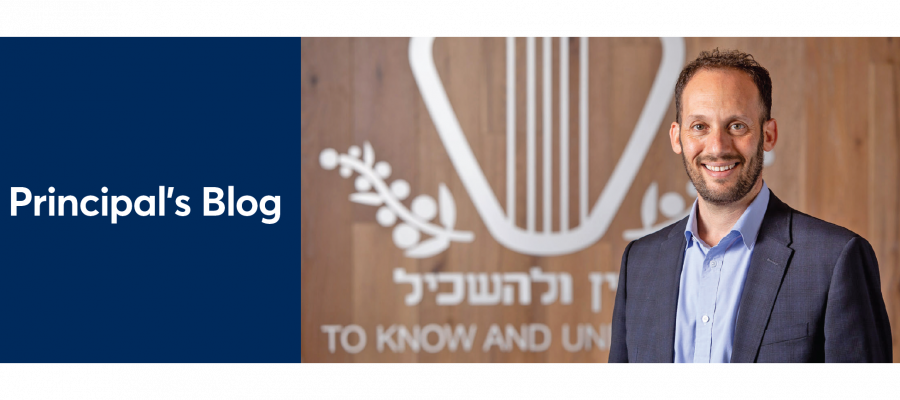
Yearning for knowledge and understanding
“The people who build and support Jewish day schools – they are the heroes of the Jewish world, because they are the builders of the Jewish future … The very success of the Jewish people and surviving and thriving through all circumstances, some good, and some not so good, was due to the fact that we put education as the first of our [communal] priorities … The Mesopotamians built ziggurats. The Egyptians built pyramids. The Greeks built the Parthenon. The Romans built the Colosseum. Jews built schools. That’s why we’re still here, still strong, and still young while all those super powers in their day have been consigned to history.”
These words by Rabbi Lord Jonathan Sacks speak of his deep and abiding understanding of the value of Jewish education. Sadly, Rabbi Sacks passed away this week. In an obituary in The Guardian it was stated that he was “generally acknowledged as one of the most brilliant intellects of his generation.”
Rabbi Sacks’ high regard for the unique priority proffered to education within the Jewish community is well founded. Stories abound of the great honour bestowed upon teachers in Jewish communities and of the enormous sacrifices community members have undertaken to ensure provision of education to the next generation.
Indeed, embedded in our narratives, customs and practice is the understanding that education is at the heart of our continuity. Examples that spring to mind are the traditions of Tikkun Leil Shavuot and its night full of study; and the structure of the Pesach Seder with its call and response, and question and answer format. Teaching and learning and the drive to question are inherent in what it means to be Jewish.
There is a beautiful Talmudic story which is often interpreted to show the enormous regard our tradition holds for studying, questioning and even arguing. This is the somewhat radical story of Rabbi Eliezer ben Hyrcanus who is engaged with other rabbis in a technical and pedantic discussion relating to the halacha regarding the kashrut of a particular oven. Rabbi Eliezer insists that God aligns with his interpretation and creates a test to demonstrate this. He points to a carob tree and says that if he is correct, the tree will prove it. The tree then promptly uproots and flies into the sky. However, rather than being awed, the rabbis respond that Jewish law is not interpreted by carob trees. Rabbi Eliezer goes on to make water flow upstream, to make the walls tremble and finally brings forth God’s voice from heaven.
While God explains the correctness of Rabbi Eliezer’s interpretation, the other rabbis are unmoved. They cite Deuteronomy and state that “the Torah is not in heaven.” They say that the usual practice of rabbinic analysis and interpretation should prevail, despite God’s interference.
Joel Swanson points out that “even more radical is God’s response: Far from being angry or upset that the rabbis have usurped heavenly authority over the Torah, God is amused. The story concludes by telling us that God listens to this rabbinic debate in heaven while smiling and laughing. “My children have triumphed over Me; My children have triumphed over Me.””
This week our VCE students began their final exams. Amidst the flurry of practice essays, memorising quotes and discussing nuance, it is easy to forget the bigger picture. That is that this yearning for knowledge and understanding lies at the heart of what it means to be human. To quote Rabbi Lord Jonathan Sacks one more time: “To defend a country, you need an army. But to defend humanity, you need education.”
